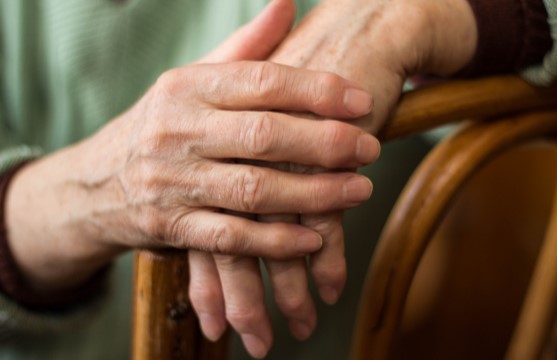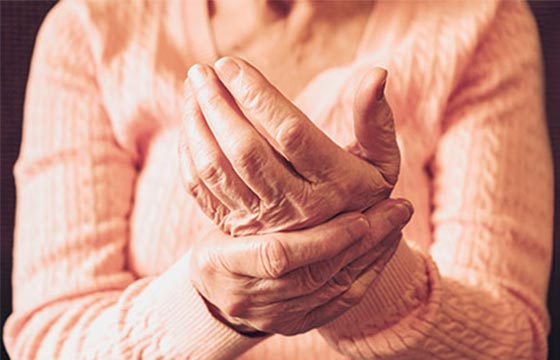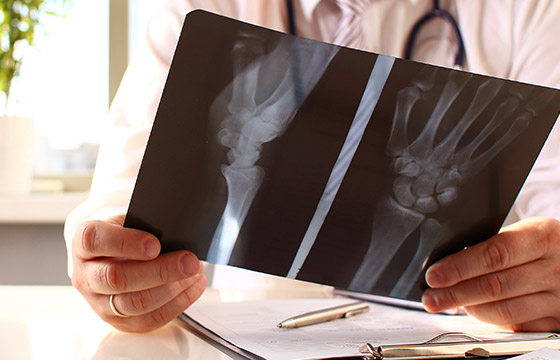Psoriatic Arthritis
What is Psoriatic Arthritis?


Psoriatic arthritis is a type of arthritis that develops in some people who also have the skin condition psoriasis. Psoriatic arthritis usually affects the joints, causing inflammation (swelling), stiffness and pain. Like psoriasis, psoriatic arthritis is a long-term condition.
Psoriatic arthritis is thought to be a type of disease known as an autoimmune condition. The immune system is the body’s natural self-defense system, and it normally protects us from infections and illness. Auto-immune conditions cause the body’s immune system to mistakenly attack the body’s healthy tissues, such as the joints, causing inflammation.
Inflammation is normally an important tool the immune system uses to fight an infection by sending extra blood and fluid. However, in psoriatic arthritis the inflammation and extra fluid in a joint can cause pain and stiffness as well as permanent damage to the joint.
What are the symptoms of psoriatic arthritis?
Psoriatic arthritis is a type of arthritis that develops in some people with the skin condition psoriasis. The main symptoms of psoriatic arthritis are joint pain, swelling and stiffness. Psoriatic arthritis can cause problems in any joint in the body, but the condition often affects the hands, feet, knees, neck, spine and elbows.
Psoriatic arthritis can be different from person to person. Some people may have severe problems affecting many joints, whereas others may only notice mild symptoms in 1 or 2 joints.
There may be times where symptoms get better (remission) and periods when they get worse (flares).
Dactylitis


Swollen fingers and toes that can become painful. Dactylitis most commonly affects one or two fingers or toes at a time.
Pain and stiffness


Affected joints can often feel stiff and painful. For example, you may not be able to fully bend your fingers or form a fist if your hands are affected. Pain and stiffness is often worse in the mornings and after periods of inactivity.
Swelling, redness and warmth


Inflammation in the lining of joints, this can cause joints to swell, and become hot and tender to the touch.
Enthesitis


A painful inflammation where bones attach to ligaments or tendons. Common sites include the top of the shin bone, behind or under the heel and where the ribs join the breastbone. If your ribs are affected, you may experience chest pain and find it hard to breathe deeply.
Uveitis


Signs of uveitis are painful, watery or red eyes, blurred vision and sensitivity to bright light.
Other psoriatic arthritis symptoms
Some people with psoriatic arthritis can experience a range of more general symptoms, like:
- Nail changes (pits, small depressions or lifting from the nail bed)
- Tiredness and a lack of energy (fatigue)
- A high temperature (fever)
- Sweating
- A poor appetite
- Weight loss
What causes psoriatic arthritis?
Psoriatic arthritis affects between 20–40% people with psoriasis. Psoriatic arthritis normally develops within 10 years of being diagnosed with psoriasis, although some people can experience problems with their joints before they have any symptoms affecting their skin.
As previously mentioned, psoriatic arthritis is an autoimmune condition, which means it's caused by the immune system attacking healthy body tissue. However, it’s not yet known what triggers this or why some people with psoriasis develop psoriatic arthritis and others don’t.
Normally, your immune system works to make antibodies that attack viruses and bacteria, helping to fight infection. Psoriatic arthritis causes your body’s immune system to mistakenly send antibodies to the lining of joints, where they attack the tissue around the joint.
Psoriatic arthritis risk factors
There are a few things that may increase the risk of developing psoriatic arthritis, including:
- Genetics – about 40% of people who are diagnosed with psoriatic arthritis and psoriasis have family members affected by the disease
- Environmental factors - many things, such as a virus, infection, trauma of some kind, or having a very stressful event in your life like childbirth or bereavement
- Smoking – some evidence suggests that smoking is associated with psoriatic arthritis
Read more

Axial Spondyloarthritis & Ankylosing Spondylitis
axSpA and AS are chronic rheumatic conditions causing inflammation of the spine
Read more
Rheumatoid arthritis
Rheumatoid arthritis is a painful condition caused by inflammation of the joints
Read more
Diagnosing Inflammatory Arthritis
Your doctor will use several scans and tests to diagnose inflammatory arthritis
Read moreSend your Feedback!
Would you recommend the UCBCares website to other visitors?